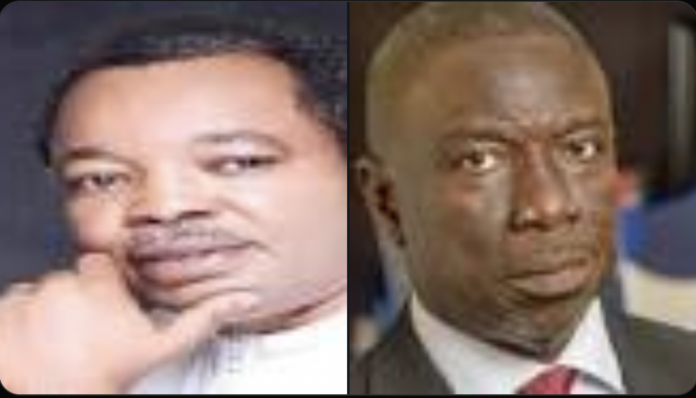In a dramatic twist, Banwo & Ighodalo, one of Nigeria’s leading law firms, has announced plans to take legal action against Jarrett Tenebe, the Acting Chairman of the All Progressives Congress (APC) in Edo State. This follows serious accusations made by Tenebe against the firm’s founding partner, Asue Ighodalo.
In a strongly worded letter dated December 18, 2024, the law firm described Tenebe’s remarks as “reckless, libelous, and without foundation.”
The controversy began during a December 17 interview on TMC TV/Radio, where Tenebe accused Ighodalo of stealing 21 government vehicles from the Edo State Government.
Banwo & Ighodalo did not take these allegations lightly, asserting that they were false and damaging to Ighodalo’s reputation.
The law firm had previously issued a demand letter on December 11, urging Tenebe to retract the statement and issue a public apology. Despite this, the allegations continued, prompting the legal team to take more drastic measures.
Banwo & Ighodalo has now given Tenebe three days to apologize or face a formal lawsuit.
Defamation Claims Unfounded, Says Banwo & Ighodalo
The law firm is determined to protect the integrity of its partner. Senior Advocate Abimbola Akeredolu (SAN) signed the letter, highlighting the severe damage caused by the defamatory statements.
“The allegations are completely baseless and intended solely to tarnish the reputation of Mr. Ighodalo,” Akeredolu said in the letter.
In addition, the Team Asue Media Organisation (TAMO), which represents Mr. Ighodalo, swiftly responded to the allegations.
A spokesperson for TAMO, Erhabor Emokpae, called the claims a deliberate smear campaign aimed at harming Ighodalo’s public image.
Emokpae added, “These accusations are without merit and are clearly a political strategy to discredit Mr. Ighodalo.”
Background on Asue Ighodalo’s Reputation
Asue Ighodalo is a well-respected figure in Nigeria’s political and business circles. He served as the Chairman of Alaghodaro, a private-sector-driven initiative aimed at promoting economic growth in Edo State.
During his 16 years of public service, Mr. Ighodalo has built a reputation for integrity and selflessness.
TAMO’s statement emphasized that Ighodalo funded his own expenses while serving in the public sector, including his time at Alaghodaro.
“Mr. Ighodalo has always maintained a reputation for honesty and transparency in all his dealings,” the statement concluded.
Political Tensions Behind the Allegations?
The allegations against Ighodalo come at a time of rising political tensions in Edo State. There are speculations that Tenebe’s statements are part of a wider political maneuver to shift attention from more pressing governance issues in the state.
Observers have noted that political figures often use defamation as a tool to distract the public and weaken their opponents.
Legal experts are closely following the case, noting that defamation suits involving prominent figures have the potential to influence public discourse and the political climate in Nigeria.
Weaponizing False Information: A Growing Concern
Banwo & Ighodalo has strongly condemned the use of false information for political purposes. The firm warned that such actions contribute to the erosion of public trust in democratic institutions.
“This matter goes beyond just defending Mr. Ighodalo’s reputation. It is about defending the truth in public discourse,” a senior partner at the law firm commented.
The firm stressed that individuals should be held accountable for spreading baseless allegations, particularly when the goal is to undermine the character of others for political gain.
The Legal Path Ahead
If Tenebe does not retract his defamatory statements within the three-day period, the law firm has confirmed its intention to proceed with a lawsuit.
Legal experts believe that this case could set an important precedent for how defamation claims are handled in Nigeria’s political landscape.
The outcome of this legal battle will be closely watched by both political and legal observers, who anticipate that the case will serve as a test for Nigeria’s legal system and its commitment to ensuring accountability in political discourse.

